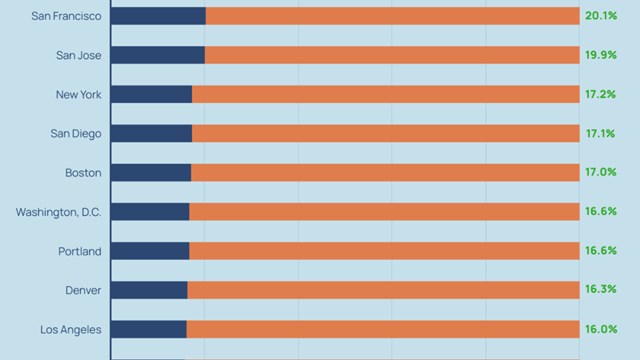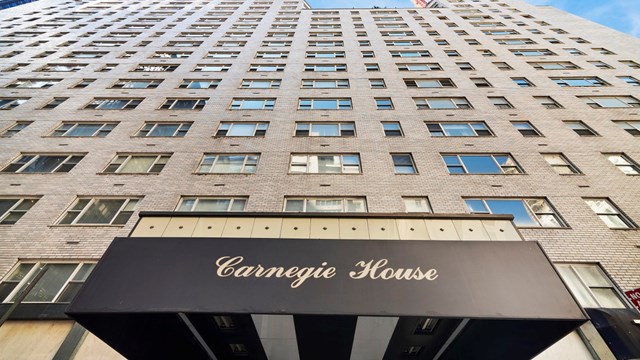Proposed legislation by the New York City Council to require energy audits, while a nice idea, is extremely cost-prohibitive especially in today’s economy. The bottom line is that the spending proposed in this bill (Intro 967) will be taken straight out of the operating budgets of co-ops and condos and not the city coffers.
Among the legislation’s provisions are that owners of buildings 50,000 square feet or more must retain an approved energy professional to conduct the once-per-decade audit, which the city will require of a specified 10 percent of affected buildings each year for 10 years. The audit would identify both “capital alterations of building systems involving the installation of new equipment, insulation or other proven energy efficiency technologies” and “reasonable retro-commissioning and retrofit measures that would ... reduce energy use and/or the cost of operating the building.”
Which co-ops or condos will be most affected by this bill? Not the Manhattan high-rises recently built with fancy names and green roofs, but the garden style and high-rise variety built a half century ago dotting the neighborhoods of Queens and Brooklyn where many of the working class families of our city live. And worse yet, you will have nothing to say about it.
Government-mandated spending, which was once the bane of local municipalities is now spreading to the residential housing stock of our city. City legislators, many of whom I venture to guess probably have never stepped inside a co-op, have sponsored Intro 967, titled “Energy Audits & Retrofits.” This bill is being sold as an environment-friendly green bill but in my opinion it will wreak havoc on co-ops and condos by mandating huge expenditures for green projects. The bill is on the move and is scheduled for a hearing before the City Council’s Environmental Protection Committee in mid-July.
Intro 967, which is part of the Mayor Michael R. Bloomberg’s larger PlaNYC 2030, would require that all buildings including co-ops larger than 50,000 square feet undergo periodic energy audits. These energy audits, however, do not come cheap, and if one finds that your building is lacking in energy efficiency and can be retrofitted to save energy with a project payback period of seven years or less, then you have no choice but to do the project. What about cost? It doesn’t matter. Does it save energy and will the project’s cost be paid back in seven years through savings? Those are the only determining factors that matter.
Usurping the Decision-Making Process
The city’s Office of Long Term Planning and Sustainability (OLTPS) will soon make such decisions that were once sacrosanct and the domain of the boardroom. And what if you don’t have the money lying around to replace the windows or boilers in your building as outlined in your energy audit? No problem, the OLTPS would require you to finance the project. Never mind that the board may have other priorities for its shareholders’ money such as sidewalks, driveways, elevators, roofs, lobby renovations or pointing. The board is elected by its shareholders and unit owners to make difficult decisions and choices about prioritizing spending needs are suddenly being superceded by legislators who will now determine the best way for your co-op or condo to spend its limited resources.
This legislation is serious business and is being fast tracked for approval. If the payback period for an energy efficient project is seven years or less, needless to say, you have no choice but to do it. Don’t have the money, and don’t want to incur debt or assess your shareholders? You can apply for a waiver one-year at a time. However, the caveat is that your building must meet the city’s yet to be defined threshold for a “financially-distressed” building eligible for a waiver. And if you are successful in getting a waiver, then the “financially distressed” building label surely won’t help with sales and property values and perhaps may do even more damage than the actual spending of funds you don’t have.
At a recent Federation of New York Housing Cooperatives and Condominiums (FNYHC) meeting, Rit Aggarwala, director of Long Term Planning and Sustainability discussed this bill. He said his agency along with the New York City Department of Finance will draw up the regulations that will determine if your building can afford the project or be deemed a financially-distressed building eligible for a one-year waiver. However, if the OLTPS believes your building can afford the project by taking out a loan or assessing your shareholders, then they are unlikely to grant you a waiver. Affordability is in the eyes of the beholder and if those eyes aren’t paying the bills, hold on to your wallets.
It’s Just Wrong
From my perspective, this bill is everything that is wrong with politics and the City Council in New York today. Fifty-one members, many of whom have little or no understanding of cooperative housing, believe that they are in a better position than you to manage your building’s spending. As an accountant and City Council candidate for the 23rd Council District in Queens, this is about the most frightening piece of co-op housing legislation I have seen. The budgeting process, which has been the sole domain and responsibility of an elected board of directors that knows its building, knows its shareholders and knows its priorities, is now being turned onto its head.
Intro 967 will destroy a co-op or condo’s ability to keep maintenance affordable and commensurate with its shareholders’ or unit owners’ ability to pay. It will challenge any building’s ability to maintain sound and prudent debt levels.
Bob Friedrich is president of Glen Oaks Village, New York’s largest garden apartment co-op with 10,000 residents in eastern Queens. He is also a candidate for the New York City Council from the 23rd Council District in Queens.







3 Comments
Leave a Comment